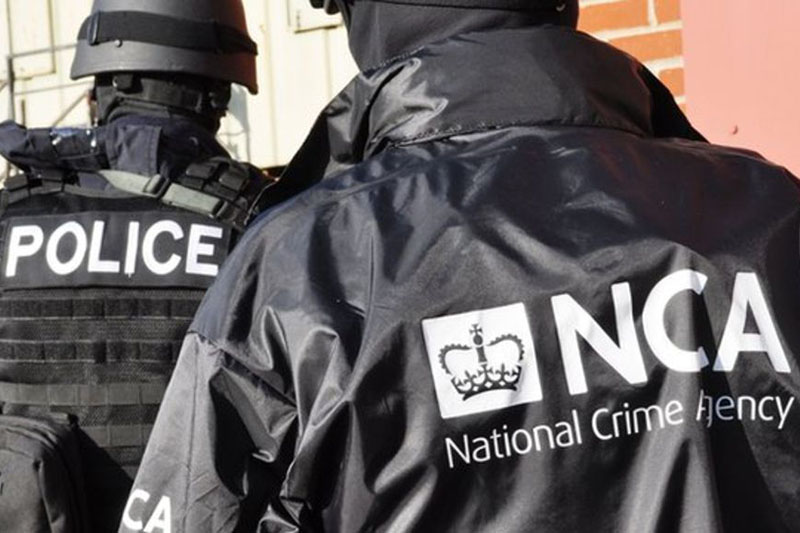For all the hard work by the NCA and its partners at home and overseas, organised crime continues to grow.
Last month, without fanfare, the British agency charged with fighting serious and organised crime marked its 10th anniversary. The scale of operational activity is immense (the National Crime Agency (NCA) revealed it is currently running more than 800 live operations), but largely unknown to the public it seeks to protect.
From drugs to firearms and fraud, serious and organised crime is now believed to cause more harm, to more people, more often, than any other national security threat.
Ten years and five Home Secretaries since its establishment, the Agency is at the forefront of the UK’s operational response to fighting organised crime and is, arguably, one of the few success stories of a Conservative government.
And yet, for all the hard work by the NCA and its partners at home and overseas, organised crime continues to grow.
Long-term approach
Record highs have been seen in a number of threat areas. These include organised immigration crime, with a record 45,755 individuals arriving by small boat in 2022 – a 60% increase on 2021.
The amount of drugs seized is reported this year to have increased by 21% in England and Wales. But with 2.7% of the adult population using Class A drugs, the challenge is less about finding drugs (a significant amount of cocaine washed up on the Isle of Wight last weekend) and more about taking a long-term approach to fixing a social problem that blights communities across the UK.
With the NCA estimating that 680,000-830,000 UK-based adults are assessed to pose a risk to children, how realistic is it to rely principally on police and wider law enforcement to protect the public?
When the police and law enforcement strike gold (literally and metaphorically), the results are significant. The takedown of encrypted communications platform EncroChat, used exclusively by criminals, led to 3,147 suspects being arrested, 1,240 offenders convicted, more than nine tonnes of cocaine and heroin seized, and offenders jailed for more than 7,930 years.
But the pace of technological makes this success short lived; 5G will create another challenge for law enforcement agencies worldwide, while a comprehensive deal with the likes of Meta, Google and WhatsApp on providing law enforcement with a technically feasible safety solution remains uncertain.
Other operational successes include the NCA’s campaign against child sexual abuse. The conviction of Birmingham University professor Matthew Falder after a landmark investigation is one example. The operation saw a special taskforce involving the NCA, US Homeland Security Investigations, Australian Federal Police and Europol take months to collect intelligence on Falder before he was arrested at his office.
But with the NCA estimating that 680,000-830,000 UK-based adults are assessed to pose a risk to children, how realistic is it to rely principally on police and wider law enforcement to protect the public?
Coming of age
Threats continue to evolve. Ongoing technological advances have transformed the dynamics of serious and organised crime since 2013. This has enabled the growth of a fraud threat accounting for 41% of all crime experienced by adults in the year to September 2022.
Criminal use of 3D printing, hyper-realistic imagery created by AI in child sexual abuse, and metaverse technology are growing concerns. And while more crime takes place online, this activity is also more sophisticated and global in reach, involving new patterns of victimisation.
Marking the anniversary, the NCA reported that its work had led to over 23,000 disruptions, 12,500 arrests, 4,900 convictions, jail terms of over 21,100 years. But organised crime is not something that a government can arrest its way out of.
Marking the anniversary, the NCA reported that its work had led to over 23,000 disruptions, 12,500 arrests, 4,900 convictions, jail terms of over 21,100 years. But organised crime is not something that a government can arrest its way out of, even if the prospect of kicking down doors is seen as a useful photo op for aspiring politicians.
Today, at least 59,000 individuals are assessed to be involved in serious and organised crime in the UK. The threat posed continues to grow.
The NCA may have come of age (the Labour party has suggested it would ask the Agency to investigate astronomical levels of fraud committed during the Covid pandemic). But the challenge is far greater than that set out in government strategies, carefully crafted speeches and set piece photo ops.
The diet of arrests, so-called disruptions and seizures are crucial to the UK’s national security and public safety. But such an approach can be an unhealthy obsession for politicians, the public and press who crave headlines, short-term success and shun anything that looks difficult or long term.
Protecting the public from the sophistication, global reach and digitally enabled activity of today’s serious and organised criminals depends on a more comprehensive approach. The NCA may have proven its worth, but the challenge is far greater than one Agency alone can address. A new government would do well to remember that.
About the Author
 Cathy Haenlein is Director of the Organised Crime and Policing research group and Senior Research Fellow at RUSI, with expertise in serious and organised crime, illicit trade, conflict and development. Cathy has a particular focus on transnational environmental crime, with regional expertise in East and Southern Africa, and is also the Chair of RUSI’s Strategic Hub for Organised Crime Research, established in partnership with the Home Office, National Crime Agency, Foreign and Commonwealth Office, and Research Councils UK’s Partnership for Conflict, Crime and Security.
Cathy Haenlein is Director of the Organised Crime and Policing research group and Senior Research Fellow at RUSI, with expertise in serious and organised crime, illicit trade, conflict and development. Cathy has a particular focus on transnational environmental crime, with regional expertise in East and Southern Africa, and is also the Chair of RUSI’s Strategic Hub for Organised Crime Research, established in partnership with the Home Office, National Crime Agency, Foreign and Commonwealth Office, and Research Councils UK’s Partnership for Conflict, Crime and Security.


